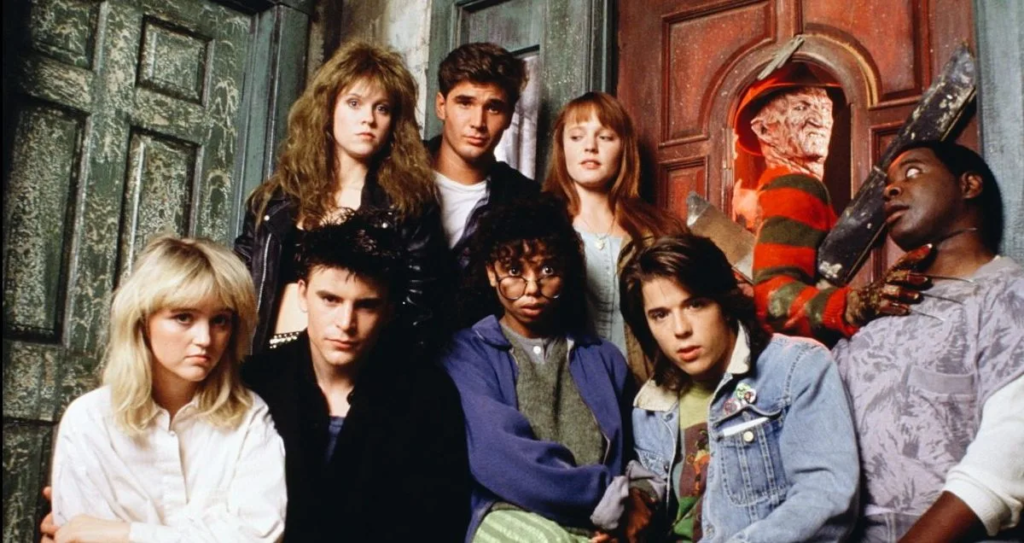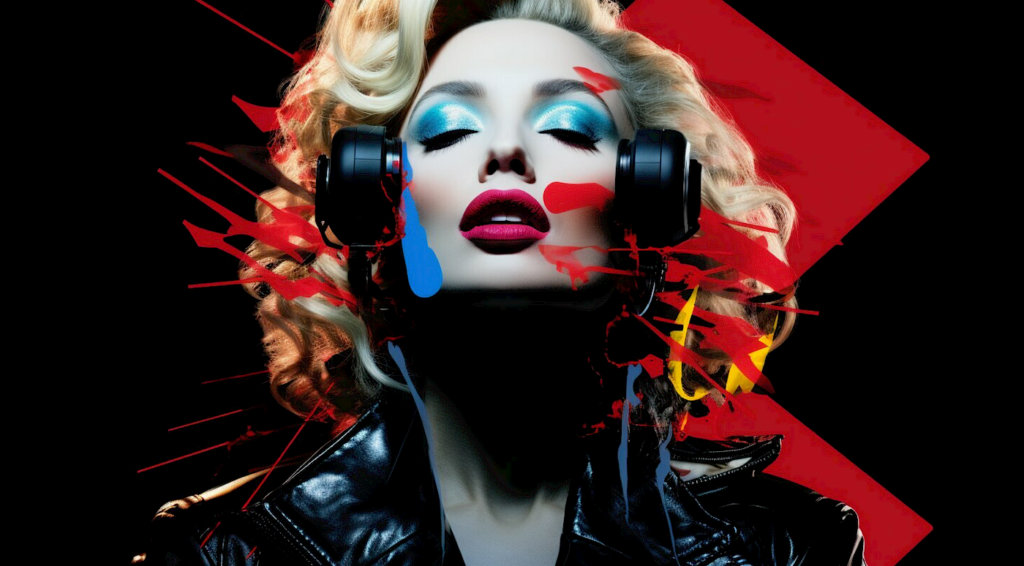Madonna Louise Ciccone, more famously known simply as Madonna, is one of the most influential figures in the history of popular music and culture. Madonna Her career, spanning more than four decades, has left an indelible mark on music, fashion, film, and societal norms. Known for constantly reinventing herself, both artistically and personally, Madonna is a trailblazer who has continually pushed boundaries and challenged expectations. She is often referred to as the “Queen of Pop,” and her influence extends far beyond the world of music.
This article will explore Madonna’s life, career, her impact on popular culture, and how she has maintained her relevance in a constantly evolving industry.
1. Early Life and Beginnings in Music

Madonna was born on August 16, 1958, in Bay City, Michigan, to a large Italian-American family. Her early life was shaped by tragedy, as her mother passed away when Madonna was only five years old. This loss deeply affected her and became a recurring theme in her work, influencing the fierce independence and defiance that would later define her career.
After high school, Madonna moved to New York City in 1978 to pursue her dreams of becoming a professional dancer. She arrived in the city with just $35 in her pocket, an emblem of her determination and ambition. While studying dance, she started performing as a singer and musician, joining a few bands before deciding to pursue a solo career.
Madonna’s blend of ambition, talent, and relentless drive helped her land a recording contract with Sire Records in 1982. Her debut single, “Everybody,” was released later that year and became an underground club hit, marking the beginning of a remarkable career. In 1983, she released her self-titled debut album, Madonna, which included popular singles like “Holiday,” “Borderline,” and “Lucky Star.” The album’s success catapulted Madonna into the mainstream, establishing her as a rising star in the music industry.
2. The Rise to Superstardom: 1980s

The 1980s were a defining decade for Madonna, Madonna during which she solidified her position as a global superstar. With the release of her second album, Like a Virgin (1984), she became a cultural phenomenon. The title track, “Like a Virgin,” topped the Billboard charts and caused controversy due to its provocative lyrics and Madonna’s bold performances. Her performance at the 1984 MTV Video Music Awards, where she rolled around on stage in a wedding dress, is still considered one of the most iconic moments in pop history.
Throughout the 1980s, Madonna continued to release hit albums that not only topped charts but also helped shape the musical and cultural landscape. Albums like True Blue (1986), which featured hits like “Papa Don’t Preach” and “La Isla Bonita,” and Like a Prayer (1989), with songs like “Express Yourself” and the title track, reinforced her reputation as a musical innovator. The “Like a Prayer” video, with its religious imagery and exploration of race and religion, sparked outrage from conservative groups and the Vatican but also earned her praise for its boldness.
Madonna’s music videos became an essential part of her appeal, blending fashion, performance art, and provocative imagery to create a visual narrative that transcended the music itself. She used the medium of music videos not just to promote her songs but to make artistic and political statements, addressing issues like gender, sexuality, and religion.
3. Cultural Impact and Reinvention

One of Madonna’s defining characteristics is her ability to constantly reinvent herself. Unlike many pop stars who peak and then fade, Madonna has remained relevant by evolving her image and sound. Each album marks a new phase in her career, with changes in style, fashion, and musical direction that keep her fresh and unpredictable.
- Fashion and Influence: Madonna’s influence extends far beyond music; she has been a global fashion icon for decades. In the 1980s, her “boy toy” look—layered necklaces, lace gloves, and bold makeup—became a trend among young women. Her daring fashion choices have continued to inspire designers and influence pop culture, from the corsets and cone bras designed by Jean-Paul Gaultier during her Blond Ambition Tour to her elegant, more mature looks in the 1990s and beyond.
- Pushing Social Boundaries: Madonna has never shied away from controversy, and her career is marked by moments where she challenged social norms and addressed taboo subjects. From her open embrace of sexuality and LGBTQ+ rights to tackling issues like feminism, religion, and power dynamics, she has been a pioneer in using pop music as a platform for social commentary. Her 1992 book Sex, and her album Erotica, further pushed the boundaries of how women, especially in pop, could express their sexuality, challenging double standards and inspiring future generations of female artists to take control of their own narratives.
- Reinvention Through Music: Musically, Madonna has been able to adapt to new trends while still staying true to her core identity. In the 1990s, she explored a more introspective and spiritual side with albums like Ray of Light (1998), which embraced electronic music and earned critical acclaim for its depth and innovation. In the 2000s, albums like Confessions on a Dance Floor (2005) saw her return to her dance-pop roots, once again dominating the charts.
4. Film Career and Other Ventures

In addition to her musical career, Madonna has also ventured into the world of acting and filmmaking. Though her film career has been met with mixed Madonna reviews, she has appeared in notable films such as Desperately Seeking Susan (1985), Evita (1996), for which she won a Golden Globe Award, and A League of Their Own (1992).
Madonna has also worked as a director and producer, with her 2008 directorial debut Filth and Wisdom, followed by the more ambitious historical drama W.E. (2011). While these projects did not achieve the same level of success as her music, they reflect her willingness to experiment with different forms of artistic expression.
Beyond entertainment, Madonna has been involved in various business ventures, including her Material Girl fashion line and the Truth or Dare perfume brand. She has also been a strong advocate for philanthropy, particularly with her work in Malawi, where she founded the charity Raising Malawi to support orphaned children and healthcare initiatives.
5. Controversy and Criticism

Madonna’s career has been marked by controversy, which has often been a result of her willingness to push boundaries and challenge societal norms. From her provocative music videos to her outspoken views on sexuality, religion, and politics, she has faced backlash from various groups over the years. Religious institutions have frequently criticized her for her use of religious imagery, most notably in the “Like a Prayer” video and during her tours.
Despite the criticism, Madonna has remained unapologetic, often using controversy to fuel her creativity and maintain her status as a cultural provocateur. Her refusal to conform to industry standards and expectations—particularly regarding age, gender roles, and artistic expression—has also made her a feminist icon, inspiring countless other artists to challenge the status quo.
6. Madonna’s Legacy and Continued Influence

Madonna’s influence on popular culture is undeniable. Her impact on music, fashion, and society at large has shaped generations of artists and fans alike. From pop stars like Beyoncé, Lady Gaga, and Britney Spears, to contemporary artists like Taylor Swift and Dua Lipa, Madonna’s trailblazing career has paved the way for female empowerment and artistic Madonna freedom in the music industry.
Her ability to stay relevant in an industry that is constantly changing is a testament to her vision, creativity, and work ethic. Even in her 60s, Madonna continues to tour, release new music, and engage with younger audiences, showing that she is far from finished.
Her most recent albums, including Madame X (2019), show that she is still willing to take risks and experiment with new sounds, blending reggaeton, Portuguese fado, and world music influences with her signature pop sensibilities. Her music continues to explore complex themes such as identity, freedom, and resilience.
Conclusion
Madonna’s career has been a journey of artistic exploration, reinvention, and boundary-pushing. She is not just a pop star but a cultural icon who has shaped music, fashion, and societal norms for over four decades. From her early days in the 1980s to her continued influence in the 21st century, Madonna remains a force to be reckoned with—a true Queen of Pop who has left an indelible mark on the world. Her legacy of innovation, empowerment, and artistic freedom will undoubtedly inspire future generations of artists for years to come.
